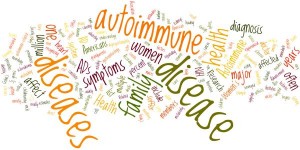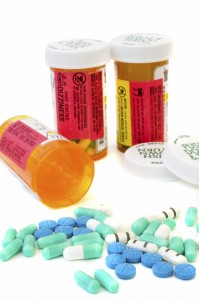At Blum Center for Health, we’ve noticed that our adult patients tend to eat less and less protein as they get older. Some people lose their taste for it, while others find it too hard to digest animal meat. And most people aren’t as familiar with eating vegetarian protein like beans, nuts, and seeds. But protein in the diet is crucial. It’s broken down into amino acids that are critical for good immune function, among other things. Plus, protein will help you feel full, keep you from getting hungry and is a cornerstone to all weight loss programs. A breakfast smoothie is a great way to make sure you get the protein you need.
Uncategorized
Does Gluten Cause Disease?
It seems like everywhere you look there’s another food package labeled “gluten-free”. Is this the latest food fad or is this really a healthy choice for you? And what is gluten free, anyhow? There is a lot of confusion in both the media and the grocery aisle, and as you read on, I hope to shed light on this important topic.
In my new book, The Immune System Recovery Plan, I focus on using food as medicine as one of the 4 steps to treat autoimmune disease, specifically focusing on gluten and answering the question: What is Celiac disease and how is it different from gluten intolerance? And can you get sick from gluten even if you don’t have Celiac disease? The answer? Absolutely.
Celiac disease is a very specific autoimmune illness that is defined by damage to the villi of the small intestines. The trigger for this damaging immune reaction is gluten, a protein found in wheat, barley, spelt, rye and kamut. The conventional dogma is that if you don’t have this intestinal damage you don’t have a gluten problem. Wrong! It turns out that gluten can trigger other immune reactions and symptoms without any damage to the small intestine, thus you can test negative for Celiac, but still be gluten intolerant. And there is good evidence that gluten is associated with other autoimmune diseases as well, like Hashimoto’s thyroiditis and Graves disease.
In the United States, wheat has been hybridized over the past 50 years so that it no longer is genetically the same as the wheat our ancestors ate. Wheat contains lots of gluten, and these genetic changes have increased the amount of gluten in the wheat we consume. Gluten is very hard for the body to breakdown, and doesn’t always get digested completely. When partially digested gluten particles get into our blood stream, they can trigger an immune reaction causing vague symptoms like brain fog, fatigue, inflammation and achiness in muscles and joints. Some people also have obvious gut symptoms like gas and bloating which are clear signs of gluten intolerance.
How do gluten particles get into your blood stream? First, certain conditions damage the lining of the intestinal tract. For example, antacids, antibiotics, severe prolonged stress, not enough good bacteria, and too much bad bacteria or yeast (a condition called dysbiosis) are all conditions that cause leaky gut syndrome. This means the intestinal lining becomes “leaky” and the gluten protein sneaks into the body, causing an emergency reaction from the immune system.
To make matters worse, the gluten protein “looks” like our tissues, so the immune system can get confused, attacking the body and causing an autoimmune disease. This is called “molecular mimicry” and is one of the ways you can get sick from gluten.
For this reason, I always recommend that you remove gluten during a detoxification program, for treatment of autoimmune diseases or for treating irritable bowel syndrome or digestive symptoms. You can do the experiment yourself: remove gluten for three weeks, and then eat it as a test to see if you notice any reaction. Be very mindful when you reintroduce it, paying attention to the appearance of symptoms of any kind. Sometimes you just feel puffy from the inflammation. These are classic gluten intolerance symptoms, and if you react this way, you should adopt a gluten free lifestyle.
There are many gluten-free products on the market. Be careful to choose breads and crackers that are made from whole grains and that are rich in fiber. Sometimes gluten-free products are made with processed rice flour or potato starch and this makes them high glycemic—increasing your blood sugar in a bad way—so it’s best to avoid these. Some tips:
- Go to a health food store or a healthy market like Whole Foods or Trader Joe’s to select items. You can also find good quality gluten-free products online.
- I love quinoa and buckwheat. You can also get pasta made from these ingredients. If you opt for rice, be sure to choose brown instead of white.
- Even if you don’t remain gluten-free, it is good to eat less of it.
- All of the recipes in my book, The Immune System Recovery Plan, are gluten-free so you can learn to cook other delicious ancient grains like quinoa and millet to add more variety to your diet.
Autoimmune Diseases & Symptoms
 What does Celiac Disease have in common with Multiple Sclerosis? Or, Lupus with Hashimoto’s? How about Rheumatoid Arthritis with Grave’s disease?
What does Celiac Disease have in common with Multiple Sclerosis? Or, Lupus with Hashimoto’s? How about Rheumatoid Arthritis with Grave’s disease?
Well, it may surprise you to know that all of these, plus more than a hundred others*, are all related. They are all autoimmune diseases at the root, and, more shockingly, more than 23 million Americans are suffering from one or more of these chronic, sometimes fatal, conditions.
Some people may not even know they have an autoimmune disease because their conventional doctors have not been able to correctly diagnose the disorder, oftentimes prescribing medications to treat the symptoms, rather than getting to the root of the illness. As a result, many people needlessly live in pain or discomfort simply because they don’t know there are other options out there.
So, what is an autoimmune disease? Very briefly, it is when the immune system, which produces antibodies to defend the body from foreign invaders like infections, germs, etc., is not working properly and ends up attacking its own healthy cells. For detailed information, refer back to my previous blog.
Today we’ll look at a few of the more common autoimmune diseases we see every day in our practice and the symptoms associated with each one. They are: Celiac – Grave’s – Hashimoto’s – Lupus – Multiple Sclerosis (MS) – Rheumatoid Arthritis (RA) – Sjögren’s Syndrome.
Celiac Disease is caused by an allergy to gluten, the protein found in wheat, barley, rye, spelt, and kamut. The villi (finger-like protrusions), that line and protect the small intestines are destroyed because the body sees the gluten as the enemy and starts to attack, but it is mistakenly attacking and destroying itself.
- Symptoms of Celiac can be wide-ranging since symptoms can sometimes manifest in other areas of the body. Even if results for celiac disease are negative, you may still have sensitivity to gluten, otherwise known as gluten intolerance. Staying away from gluten or foods cross-contaminated with gluten is the answer to feeling well. Some common symptoms include: arthritis – brain fog – fatigue – diarrhea – gas – bloating – anemia
- Detailed information on Celiac Disease and what tests to request from your health care professional can be found in my new book: The Immune System Recovery Plan.
Grave’s Disease, named after Dr. Robert Graves 150 years ago, symptoms are caused by the over-production of the hormone thyroxine in the thyroid gland, also called hyperthyroidism.
- Symptoms of Grave’s Disease include: weight loss – rapid pulse – protruding eyes – insomnia – feeling too warm – restlessness – diarrhea – irritability – heart palpitations
- Detailed information on Grave’s Disease and what tests to request from your health care professional can be found in my new book: The Immune System Recovery Plan.
Hashimoto’s Thyroiditis, named after Dr. Hakaru Hashimoto over 100 years ago, is when the immune cells turn against the thyroid gland, attacking and irritating it, causing the gland to produce too little thyroid hormone, also called hypothyroidism, the complete opposite of hyperthyroidism (too much hormone production) as in Grave’s. The early stages of Hashimoto’s can be easily missed because the thyroid is able to function pretty well. However, if the immune attack goes undetected for too long, the thyroid can become permanently damaged, which will mean permanent hormone replacement medication. So, early detection and testing are key to reversing this disease.
- Symptoms of Hashimoto’s include: enlarged thyroid (goiter) – sore throat, if your thyroid is actively inflamed – fatigue – hair loss – weight gain
- Detailed information on Hashimoto’s Thyroiditis Disease and what tests to request from your health care professional can be found in my new book: The Immune System Recovery Plan.
Lupus, or Systemic Lupus Erythematosus (SLE), is different than the other autoimmune diseases in that the immune system attacks the DNA of every cell, making the effects widespread throughout the body. It not only affects the central nervous system, like MS, but also several organs, such as the skin, joints, kidneys, and nervous system, but it can damage any other organ as well. The disease is nine times more common in women than in men, especially those in their 20’s & 30’s.
- Symptoms of Lupus include:fatigue – muscle pain and weakness – fever when disease is active – symptoms specific to the organ involved, like joint/muscle pain; difficulty breathing – butterfly rash over the cheeks and nose, appearing after sun exposure – hair loss, but not baldness – painless oral or nasal ulcers – color changes of the fingers or feet brought on by cold or emotion
- Detailed information on Lupus and what tests to request from your health care professional can be found in my new book: The Immune System Recovery Plan.
Multiple Sclerosis(MS) affects the brain and the spinal cord, or central nervous system. When the myelin, which is the protective coating of all the nerves in your body, is damaged by the autoimmune attack, it gets damage and people experience symptoms. Largely, MS affects northern European women of child-bearing age. The most common first symptom is a central nervous system dysfunction as optic neuritis, or eye pain, that gets worse when your move your eye in any direction.
- Symptoms of Multiple Sclerosis (MS) include:eye pain – numbness, tingling, or pins-and-needles anywhere in the body, that does not go away after two weeks – swelling of the limbs or trunk – intense itching, especially in the neck area
- Detailed information on Multiple Sclerosis (MS) and what tests to request from your health care professional can be found in my new book: The Immune System Recovery Plan.
Rheumatoid Arthritis(RA) occurs when your immune cells attack your joints, causing tissue damage, inflammation, and pain in your wrists, fingers, knees, feet, ankles, and surrounding tissue. RA is a very specific form of arthritis, and it may be difficult to tell the difference between the symptoms of RA and common osteoarthritis pain that can occur with aging, or after an injury. Specific blood testing is sometimes the only way to know which kind of arthritis you have.
- Symptoms of Rheumatoid Arthritis (RA) include:muscle pain – fatigue – low-grade fever – weight loss – depression – morning stiffness lasting at least one hour for at least six weeks – swelling of three or more joints for at least six weeks – swelling of wrist or fingers for at least six weeks – joint swelling on both sides of the body (symmetric) – nodules or bumps under the skin and affected joint
- Detailed information on Rheumatoid Arthritis (RA) and what tests to request from your health care professional can be found in my new book: The Immune System Recovery Plan.
Sjögren’s Syndrome is an attack on the moisture-producing glands, which include the salivary glands in the mouth, and the lacrimal glands in the eyes that produce tears. Sjögren’s Syndrome can occur on its own or in conjunction with RA. 90% of patients are female.
- Symptoms of Sjögren’s Syndrome include:dry mouth and eyes – dryness in the vagina, skin, lungs, sinuses, and digestive tract – fatigue – joint pain – muscle pain – cognitive dysfunction
- Detailed information on Sjögren’s Syndrome and what tests to request from your health care professional can be found in my new book: The Immune System Recovery Plan.
Being diagnosed with an autoimmune disease is serious, and should be treated as such, but it does not have to be a life sentence! You can heal your immune system and free yourself of a lifetime of taking meds. While we know this is a lot of information, don’t worry, the book takes you very slowly through this process…we are here to help you!
* For a complete list of autoimmune diseases: https://www.aarda.org/research_display.php?ID=47.
Immune Support Protein Powder
At Blum Center for Health, we’ve noticed that our adult patients tend to eat less and less protein as they get older. Some people lose their taste for it, while others find it too hard to digest animal meat. And most people aren’t as familiar with eating vegetarian protein like beans, nuts, and seeds. But protein in the diet is crucial. It’s broken down into amino acids that are critical for good immune function, among other things. Plus, protein will help you feel full, keep you from getting hungry and is a cornerstone to all weight loss programs. A breakfast smoothie is a great way to make sure you get the protein you need.
Somnolin 60T
Somnolin features a complementary blend of nutrients, including 5-HTP, theanine, and targeted B vitamins, to promote a restful, relaxed state and relieve occasional sleeplessness
Are Anti-Depressant Medications Right for You?
 Whether you know it or not, many of your friends are taking anti-depressant or mood stabilizing medication. Abilify, Seroquel, and Cymbalta are the 4th, 6th and 8th top selling drugs in our country. Now, don’t get me wrong, there are many people with serious mood disorders that need these meds, and also plenty of people who are going through a rough time and might temporarily need antidepressants to keep them afloat. But the average person should only need these medications temporarily, and instead find themselves taking Lexapro, Zoloft, Paxil, Cymbalta and others for years without ever having a discussion with their doctor about when and how to get off them.
Whether you know it or not, many of your friends are taking anti-depressant or mood stabilizing medication. Abilify, Seroquel, and Cymbalta are the 4th, 6th and 8th top selling drugs in our country. Now, don’t get me wrong, there are many people with serious mood disorders that need these meds, and also plenty of people who are going through a rough time and might temporarily need antidepressants to keep them afloat. But the average person should only need these medications temporarily, and instead find themselves taking Lexapro, Zoloft, Paxil, Cymbalta and others for years without ever having a discussion with their doctor about when and how to get off them.
Here is the conversation that I have every day in my office. Patient: “So, what’s the big deal? I’ve been taking Lexapro for 8 years, and I feel okay, and honestly I’m afraid to stop, to rock the boat.” Now keep in mind that this same person has come to see me because they have gained weight, have a low sex drive, brain fog, and low energy. They don’t see the connection between long term SSRI’s (selective serotonin reuptake inhibitors) and these symptoms, but I do. Over time, these SSRI’s cause an overall depletion of serotonin in your brain, and that’s why you become dependent on the medication and why it is really hard to get off. And these SSRI’s have undesirable side effects like the ones I listed above.
But this doesn’t mean you can’t stop. I love helping people get off their meds, it is one of my favorite projects. The main strategy is to support and boost serotonin levels with food and supplements, while at the same time making a plan to taper very slowly off the prescription—the tapering off process can be supervised by me or your prescribing doctor or psychiatrist. We always work together as a team. And of course this plan is for when you feel ready, and for when the tough time you went through has passed.
From a Functional Medicine approach, there are many other components to having a good mood, and so in addition to supporting serotonin, we go a thorough check list. Here are the top 2 foundational causes of most mood issues:
Food and Nutrients: How and what you eat every day has a huge impact on mood. Also, there are many nutrients that are needed to make your mood neurotransmitters like serotonin. If you are deficient in any of these, you can feel blue and depressed. This is very simple to fix. Mary will discuss this in our nutrition section below.
Adrenals: These glands make neurotransmitters, too, notably the catecholamines that are supported when you take Wellbutrin. Healthy adrenals will help you be more focused, upbeat, and put a pep in your step. Elizabeth will discuss the importance of managing stress to keep both you and your adrenals happy.
When you are ready, Elizabeth and I are here to help you achieve your goals. We know you can do it because we’ve already helped hundreds of people make this transition off their medication. Now it’s your turn!
Foresterol 90T
Reducol has such significant LDL cholesterol lowering properties that the FDA allows cholesterol- lowering claims for the plant sterols it contains. ForesterolTM mainly consists of 4 major phytosterols: beta-sitosterol, campesterol (in the free sterol form, not as sterol esters) campestanol, and sitostanol.
Blum Box Once Daily Packets
We created these once a day packets to cover the basic needs for your multivitamin, minerals, Vitamin D, and Fish oil, at a price less than the cost of buying individual bottles. One box will last 2 months.
Cholesterol: Do You Really Need Medication?
Cholesterol lowering medication is the #1 selling prescription medication in this country. Somehow, everyone has
ended up on these drugs. While I am not anti-medication, I believe there should be a discussion that weighs the cholesterol lowering medication
risks and benefits to see if each prescription is right for you. It shouldn’t be an automatic reflex with no review of alternatives to taking a statin, for example. This is our focus today, and also the topic of my free monthly talk at Blum Center for Health on February 27.
Myth #1: Lowering my cholesterol will lower my risk of heart disease and death.
 While this may be true for some of you, for most, the studies don’t prove this. People are put into risk categories, and for the highest risk people, getting your cholesterol down to a very low number and quickly, might be the right answer. But who is at high risk? Certainly not women after menopause who naturally have a rising cholesterol level—they all don’t need a statin. There are a lot of side effects from statins including impaired memory, which is a concern for many people as they age. Studies are now emerging that show that post-menopausal women without a personal or strong family history of cardiovascular disease are in the low risk zone.
While this may be true for some of you, for most, the studies don’t prove this. People are put into risk categories, and for the highest risk people, getting your cholesterol down to a very low number and quickly, might be the right answer. But who is at high risk? Certainly not women after menopause who naturally have a rising cholesterol level—they all don’t need a statin. There are a lot of side effects from statins including impaired memory, which is a concern for many people as they age. Studies are now emerging that show that post-menopausal women without a personal or strong family history of cardiovascular disease are in the low risk zone.
So who is in the high-risk zone? Anyone who has diabetes or knows they have atherosclerosis or plaque because they had a test from a cardiologist; if one of your parents had a heart attack or stroke when they were in their 50’s or younger; and finally, you need to have the advanced cholesterol test—the NMR Lipoprotein Analysis—to look at the size and shape of your cholesterol before it is deemed too high or a problem and before deciding if you are in the high risk zone. The routine numbers done in a basic lipid panel don’t tell the whole story.
Myth #2: Treat the number, it’s all that matters.
Wrong. Just getting your numbers down isn’t good enough to prevent heart disease. We need to make sure your cholesterol isn’t damaged from free radicals because that’s what makes them sticky and form plaque. This happens cholesterol if your body is inflamed or deficient in antioxidants. We need to look at this and treat it, no matter what your cholesterol numbers are. Mary will focus on this in the nutrition section below.
Myth #3: The only way to lower cholesterol is with medication.
 Wrong again. First, think about WHY cholesterol goes up? There are some people who have genetically high cholesterol, but they are the minority. For most people it is about lifestyle. Since cholesterol is used as a raw material to make the stress hormone cortisol, too much ongoing stress will prompt the liver to make more cholesterol to
Wrong again. First, think about WHY cholesterol goes up? There are some people who have genetically high cholesterol, but they are the minority. For most people it is about lifestyle. Since cholesterol is used as a raw material to make the stress hormone cortisol, too much ongoing stress will prompt the liver to make more cholesterol to
support your hormones. Elizabeth will talk more about the stress-cholesterol relationship and what to do about it. The other big cause is the foods you are eating. A diet filled with processed flour, sugar, saturated fat, and lots of animal foods like dairy will increase cholesterol. Fixing your food by eating a plant based diet filled with fiber, plant sterols, and essential fatty acids is the best way to lower cholesterol and get the antioxidants needed to keep the cholesterol you do have from getting sticky and making plaque. Of course, taking fiber, fish oil, and plant sterol supplements will help, but nothing works better than actually changing the food you eat.
Myth #4: If I take medication, I can eat whatever I want!
 This idea can really get you into trouble. Studies have shown that people who take statins are at an increased risk of diabetes. You can’t keep eating all those processed sugar and flour products while your medication keeps your cholesterol down. This false sense of security will make you sick and increase your risk of heart disease.
This idea can really get you into trouble. Studies have shown that people who take statins are at an increased risk of diabetes. You can’t keep eating all those processed sugar and flour products while your medication keeps your cholesterol down. This false sense of security will make you sick and increase your risk of heart disease.
The bottom line:
First, get a good risk assessment before you decide to just treat the number. And then work on making a few of the changes below to lower your cholesterol with lifestyle change.
Adrenal Support
Our Adrenal Support provides glandlular support to help relieve stress and fatigue.
